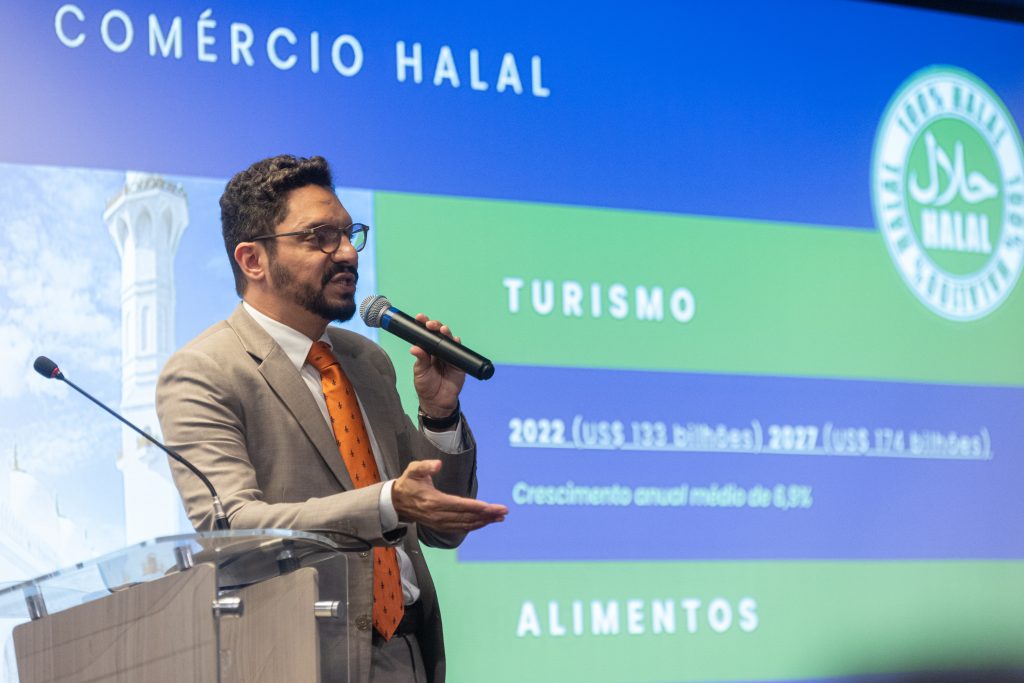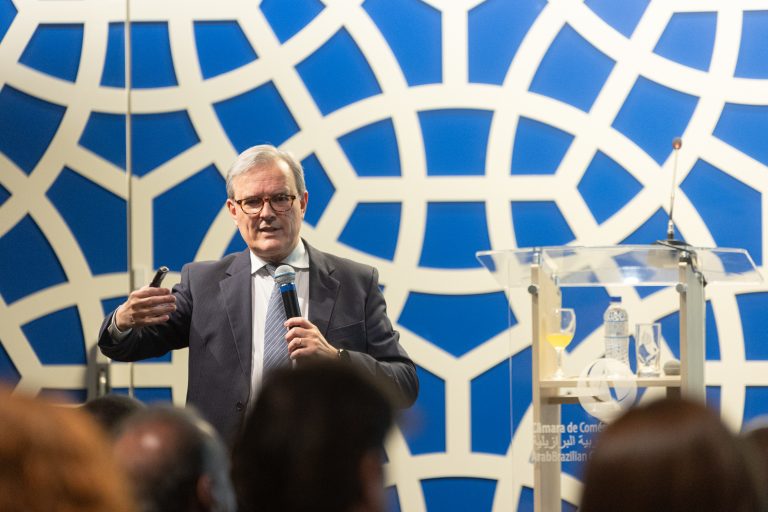São Paulo – Knowing about your interlocutor’s culture and profile and controlling emotions can influence the results of a negotiation between sellers and buyers. These are some of the lessons from a neuroscience study presented by William Cerantola, a consultant in leadership and organizational communication and marketing, at the first lecture of the ABCC Connects, a project that’ll monthly bring to the Arab-Brazilian Chamber of Commerce (ABCC) guests from different fields of knowledge to talk to its members.
Another lecture, presented by the head of the ABCC office in Dubai, United Arab Emirates, Rafael Solimeo, was titled “Learn How to Negotiate with the Arab World”. The two lectures were held on Wednesday (31) morning in the headquarters of the ABCC in São Paulo. In the “Neurosciences Applied to Business” lecture, Cerantola presented the neurosciences, a set of disciplines that study the nervous system and the relations between brain functions and mental processes.
He noted that some companies decided to bring back their employees to their offices after the pandemic because the employees and consequently the companies themselves were starting to lose their corporate culture. And the culture is important to create codes of conduct that a group establishes with another group.
Cerantola also explained that the emotional state of the people affects their decisions and the political context in which a negotiation can influence its course.
“We have the ability to connect, to interact with people. But negotiating means understanding I have my preferences on how I like to position myself, but I have to understand the profile and abilities of my interlocutor. I may be very analytical, caring for data, evidence, to make a decision. But my interlocutor wants to establish a connection based on what they like, how they think, before talking business. If I don’t notice that, I cross a line where I don’t have this connection, I don’t have empathy. That’s why negotiation profiles are important,” he said.
Negotiating with Arabs

Rafael Solimeo presented the “Learn How to Negotiate with Arabs” lecture, which is also the central topic of the book he’s launching. One of the first steps, he says, is breaking existing paradigms and beliefs in the Arab world.
“When we meet an Arab person, the first thing they say to us is assalam alaikum [Arabic for ‘peace be upon you’]. By this, they mean to start a conversation wishing that God be with you. Always tell them that on any occasion,” he said.
Solimeo also mentioned different opportunities among the 22 Arab countries. Gulf states – Bahrain, Kuwait, Oman, Qatar, Saudi Arabia, and the UAE – are major global investors through their sovereign wealth funds. North Africa nations – Algeria, Comoro Islands, Djibouti. Egypt, Libya, Mauritania, Morocco, Somalia, Sudan, Tunisia – offer business opportunities. “For instance, Sudan has excellent areas for cotton planting,” he said. Levant nations – Iraq, Jordan, Lebanon, Palestine, and Syria – are where most Arabs and descendants living in Brazil are from.
Solimeo also spoke about halal, which means fit for Muslim consumption and offer opportunities in industries such as tourism and food.
He mentioned adapting products may be necessary, and cultural-wise, he added one should not arrive early to a meeting, explaining that Arabs take their time to close a deal, and before talking goods or prices, they want to meet their eventual trade partner. They take long to negotiate but are loyal. “They won’t replace you because of cents. For the Arabs, reputation is everything,” he said.
Participating in the meeting were ABCC president Osmar Chohfi and communication and marketing vice president Silvia Antibas, board members, directors, and guests and representatives from member companies.
Read more:
Arab presence in trade shows in Brazil grows
Translated by Guilherme Miranda




